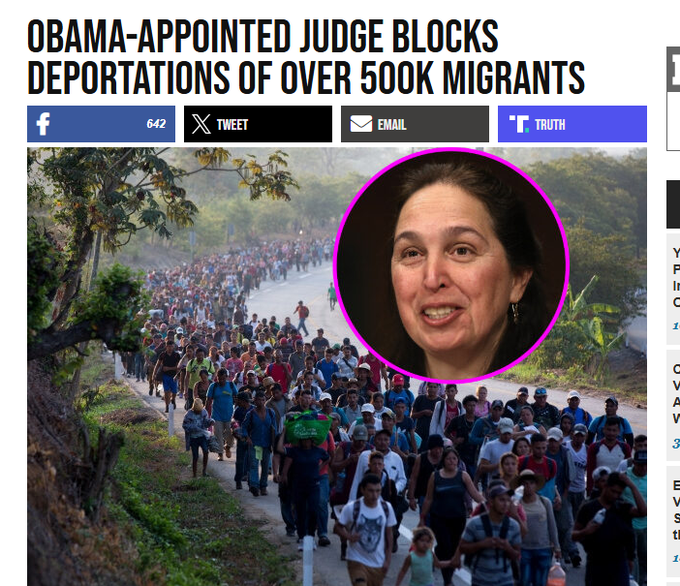Indian American U.S. District Judge Indira Talwani has temporarily blocked the deportation of over 500,000 immigrants who arrived in the United States through a Biden-era humanitarian parole initiative. These individuals, mainly from Cuba, Haiti, Nicaragua, and Venezuela, had received two-year work permits and sponsor support under the program.
Originally set to commence on April 24, the deportation efforts have been temporarily halted following Judge Talwani’s ruling. This pause grants the court additional time to determine if the government’s move to rescind these protections complies with legal requirements.
In her ruling, Judge Talwani noted that the administration had not provided a “reasoned decision” for its actions. She also raised concerns over why individuals who had undergone background checks, paid for their own travel, and secured sponsors were now being treated like unauthorized entrants.
Who is Judge Indira Talwani?
 Judge Indira Talwani, an accomplished Indian American jurist, is the daughter of Indian and German immigrants. She graduated cum laude from Harvard University and earned her law degree from UC Berkeley School of Law, where she was honored with the Order of the Coif.
Judge Indira Talwani, an accomplished Indian American jurist, is the daughter of Indian and German immigrants. She graduated cum laude from Harvard University and earned her law degree from UC Berkeley School of Law, where she was honored with the Order of the Coif.
Talwani began her legal career clerking for U.S. District Judge Stanley Weigel in California. She later built a career focused on employment law and labor rights, serving both in San Francisco and later in Boston at Segal Roitman LLP.
In addition to her judicial responsibilities, the Indian American judge has worked as a senior editor for the American Bar Association’s guide on the Family and Medical Leave Act, and frequently lectures on workplace rights and labor law.
Judge Talwani’s recent decision has sparked a national conversation about immigrant protections, administrative transparency, and the role of humanitarian programs in U.S. immigration policy.









